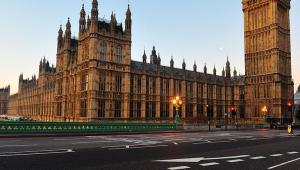31 October 2003
Unions are likely to focus their annual inflation-busting wage claim on attempts to close the gender pay gap across councils, which was flagged up in this week's long-awaited report from the Local Government Pay Commission.
The move could place the unions, and councils supporting plans to rectify pay inequality, at loggerheads with the Treasury, which recently warned public bodies against pay claims above 2.5% next year.
Sources at Unison, the UK's biggest union, told Public Finance they are seeking 'immediate remedies' to their long-running assertion that women and part-time workers are the sector's poor relations when it comes to remuneration.
A spokeswoman said the union felt 'vindicated' that the issue was now on the national agenda following publication of the report on October 29.
'It's a step forward and a likely focus of the next pay claim,' another senior unionist told PF.
While the commission's chair, Linda Dickens, concluded that there was no compelling case for an across-the-board hike in basic pay in local government, she claimed there was a case for above-inflation increases on equality grounds.
Heather Wakefield, Unison's head of local government, said Dickens' conclusions were 'a hopeful sign for a workforce in which inequality remains a persistent feature'.
She expressed disappointment, however, that Dickens had upheld the Employers' Organisation's recommendations that basic pay in the sector is adequate.
The commission reported that the total pay package in local government is as good, if not better, than that of other employers, and argued that basic pay has kept up with the broader economy.
Overall, the findings of the five-member, independent LGPC received widespread support.
Council employers, led by EO executive director Charles Nolda, stressed they would back the fight to improve pay equality. '[That] is a key area for collaboration. It is also challenging, but it is necessary to do everything we can to try to close the gender pay gap,' he said.
Ministers are likely to have breathed a sigh of relief, as the LGPC's findings largely mirror the Office of the Deputy Prime Minister's own pay and workforce strategy for local government.
The ODPM document was supposed to be informed by Dickens' report, but was inadvertently published by the EO two weeks ago – leaving ministers open to claims they had
pre-empted the commission.
Notably, Dickens upheld the ODPM/trade union view that the current system of national pay bargaining should be retained, in spite of employer support for a more flexible, regional structure.
The ODPM told PF it would look very closely at the LGPC report but, in a thinly veiled warning to the government, Dickens indicated that ministers must now engage fully in initiating changes across the sector.
'While many of our recommendations are aimed at the National Joint Council [of employers and unions], it is clear there are other, important, stakeholders who must also play a full part in addressing particular issues,' she said.
PFoct2003


















